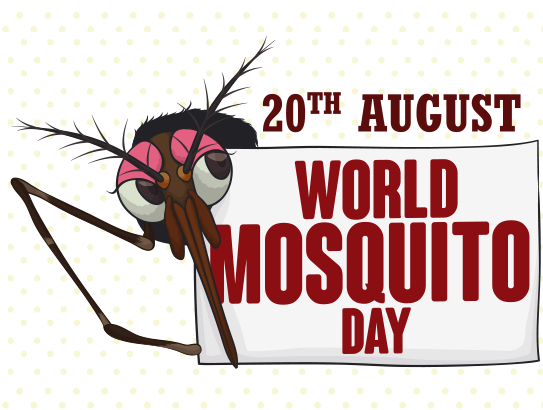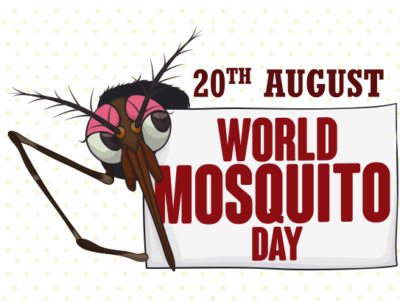World mosquito day celebrated annually on August 20, which is discovered by British Doctor, Mr. Ronald Ross in the year 1897, that female mosquito spreads malaria between humans. The event increases awareness about the threat of malaria and other diseases transmitted by the World’s deadliest animals.
Mosquito life cycle:
Mosquitoes are one of the deadliest insect in the world which are tiny stinging insects that leave on itchy welt on your skin. They transmit diseases to human and cause million of death every year. There are many different types of mosquitoes that can spread many different diseases. Mosquitoes are vectors for several diseases (that is transmits infectious pathogens between human or from animal to human).
Vector-Borne diseases:
Aedes : Chikungunya, Dengue fever, lymphatic filariasis, rift valley fever, yellow fever.
Anopheles: Malaria, lymphatic filariasis.
Culex : Japanese encephalitis, lymphatic filariasis, west Nile fever.
Symptoms of mosquitoes-borne diseases:
Fever, Headache, Muscle pain, Joint pain, Rash, Vomiting, Diarrhea
Prevention:
The Environmental Protection Agency (EPA) advised that mosquitoes need water to breed. Removing sources of standing water around the home and garden can reduce the number of mosquitoes in the area.
- Use screens and netting
- Cover up the skin when outdoors
- Avoiding wooden and grassy areas
- When planning to be in mosquito-dense areas avoid bright clothing, perfumes and scented beauty products.
Theme of world’s mosquito day:
The theme for the year 2020 is on the topic “ malaria ” .the day is celebrated to appreciate the efforts taken by healthcare officials , NGO’s and government agencies in helping people fight against various incurable diseases caused by Malaria.



